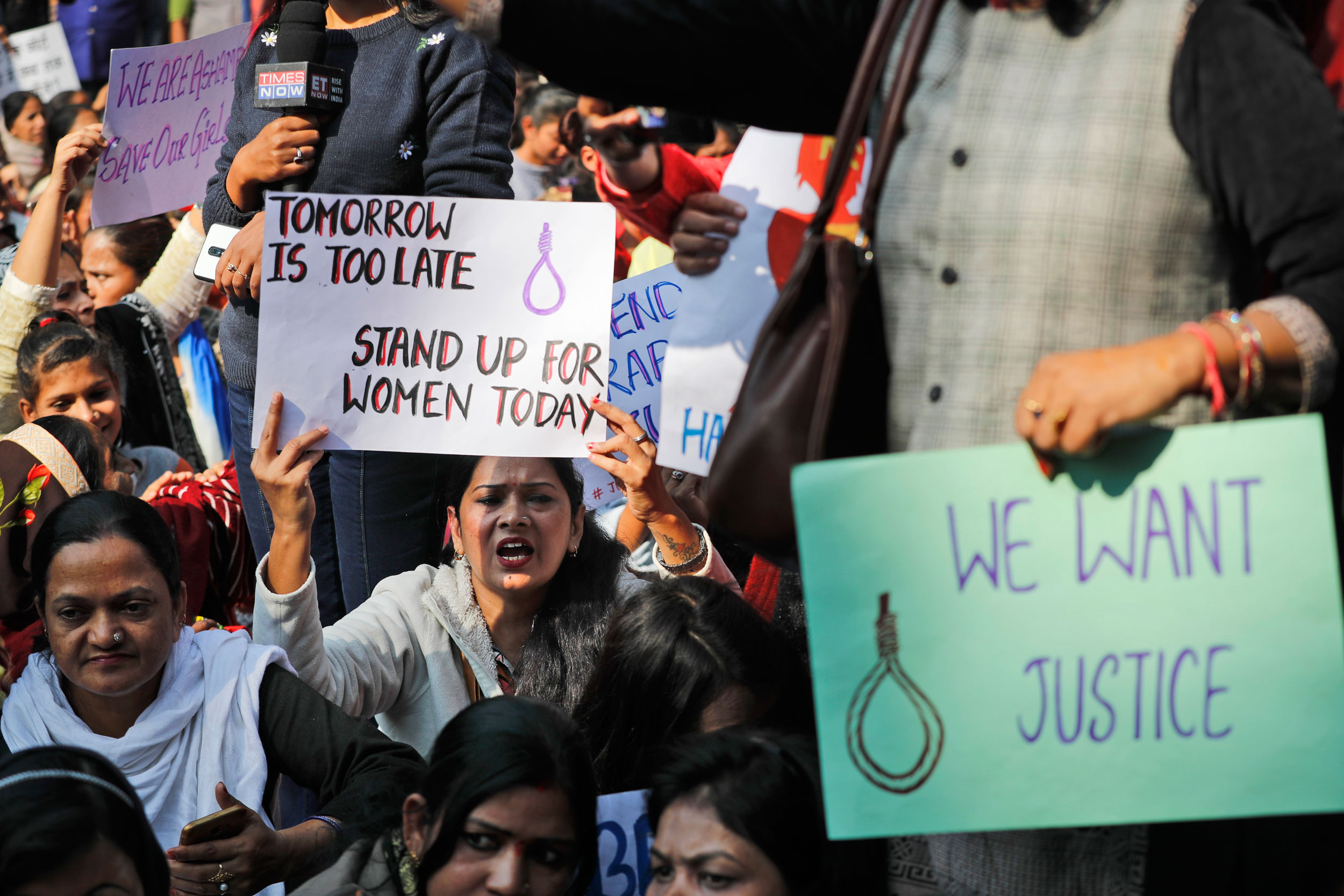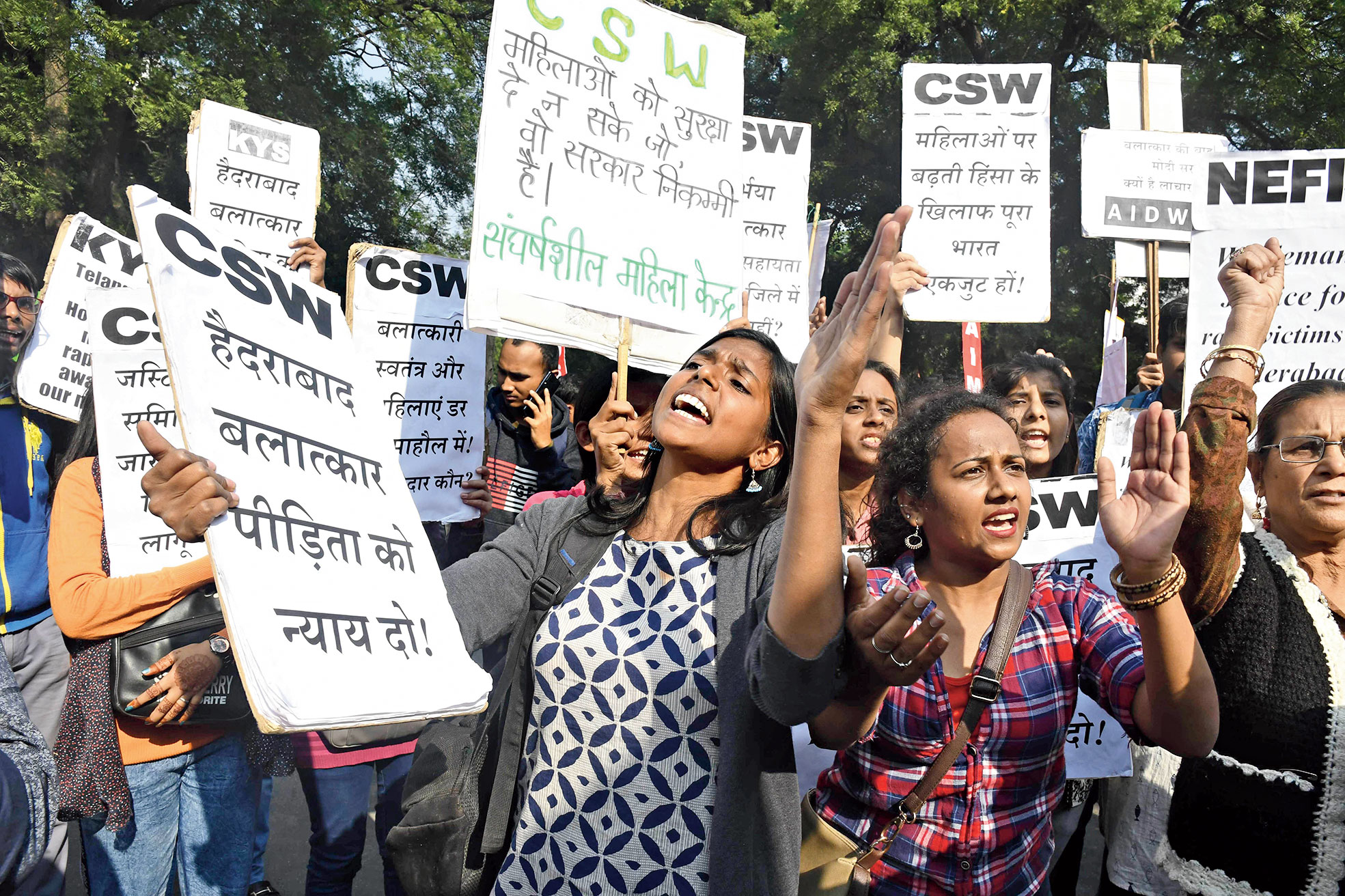As people exploded in condemnation against the gang rape, murder and burning of a young doctor on the outskirts of Hyderabad, at least seven other rapes were also reported that same week. From a four-year-old in Churu and a six-year-old in Tonk, both in Rajasthan, to a 55-year-old in north Delhi, no female need be spared from rape in India. The four-year-old and a teenager allegedly raped by two men in Vadodara and two others, in Coimbatore and Jharkhand, survived the violation. The brutal murder of the six-year-old upset an experienced policeman and in Uttar Pradesh, a 16-year-old was set ablaze after alleged rape by her neighbour. Unlike the Hyderabad doctor, whom her violators made sure was charred to death, this girl died in hospital. The hatred and sickness manifested in the incidents of just a few days demonstrate that inconspicuous little has changed since the 2012 Delhi bus gang rape and the updating of the law against sexual violence. The people’s protests seem like a surreal repetition, the legislators’ outrage in Parliament is ludicrously undermined by the fact that a large number have criminal charges against them, including of sexual assault. The sickness lies too deep — or in a completely different place — to be cured by fear, fast-track courts or threats of capital punishment.
Much of the sickness can be traced to the attitudes of the society that produces these criminals. Only one out of four accused of rape is convicted: a result of inadequate evidence that, given the thousands of cases, can only point to reluctant law-enforcers. Even today, the Supreme Court has to overturn bail given to a rape accused by a high court on the ground that the complainant was ‘habituated to sex’. Blaming the victim is common, either for the way she is dressed — what about infants? — or for being out late or in the wrong place. A Telangana minister remarked that the Hyderabad doctor should have called the police and not her sister when she felt scared. These are instinctive responses of a society bred on misogyny. And nowadays on sectarian hatred too: the rape in Hyderabad was communalized on social media without basis. Indians need serious self-reflection; sexual violence has many roots. Only active social and political will working in unison can save the country from pure barbarity.













